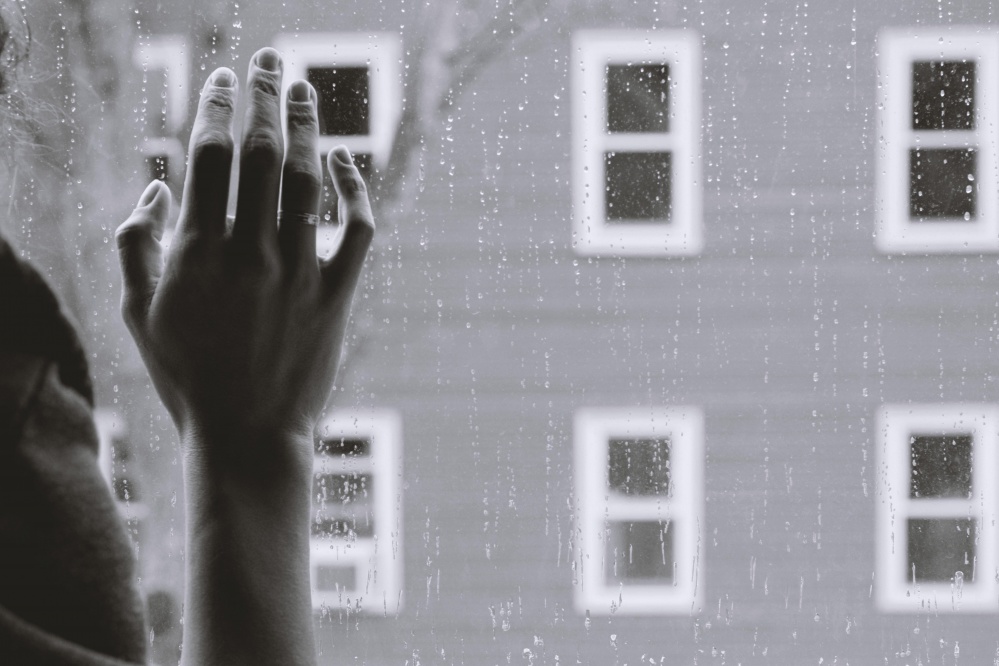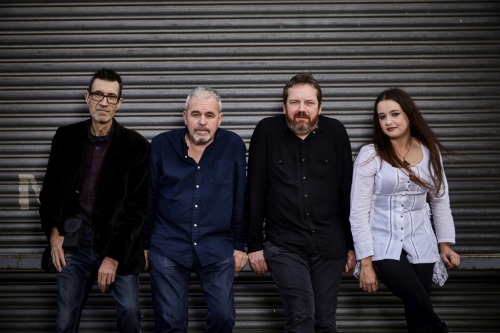The Devastating Effect of Loneliness on Our Mental Health

Our regular columnist Dr Maurice Duffy explores loneliness and the feeling of isolation, and the devastating effect it can have on our mental health
My 12-year-old son Ethan said that this was the story I should tell on my next slot with the BBC. ‘Tell them about loneliness,’ he said, ‘the heartache and isolation, and why we must talk to people and make sure they are they okay.’
I feel loneliness is such a complex emotion and one that affects so many of us. I recently read the results of a survey of 55,000 people about loneliness and was struck by the high number who admitted they were lonely. There is a perception that loneliness mainly strikes older, isolated people. Indeed, it does, with over 35 percent of our older population stating they are lonely. Yet, recent surveys are showing that 45 percent of 16- to 24-year-olds are also now admitting to feeling lonely.
I get a lot of comments about ‘the noise/chatter in our brains’ and how people feel it controls them or makes them anxious. This ‘chatter’ becomes particularly prevalent when we are lonely. So many fears and anxiety issues are born out of loneliness and it is a serious problem. Numerous people feel lonely and neglected even though they are in a relationship and have many friends. They may be surrounded by family, friends, and even colleagues, but they are somehow lacking someone trustworthy to connect with for emotional support.
For this reason, feeling lonely does not necessarily mean there is no one around you. It simply means we feel isolated and have no one who we believe deeply cares about us.
I ask myself constantly why people have to be lonely. What is the point of it all? We live in a society bloated with data yet starved for wisdom. We are connected 24/7, yet anxiety, fear, depression and loneliness are at an all-time high.
There are millions of people in this world, and all of them searching for something, looking to others to satisfy them. Yet, they keep isolating themselves from others. Why? Was the earth put here just to nourish human loneliness?
In my coaching I find so many of the people who feel lonely just want to reach out and touch another human being, not just with their hands, but with their heart. We must course- correct. Now. Today.
Lately, I have repeatedly mentioned that we urgently need a Recovery Curriculum for our children and we definitely do. But we also desperately need a Recovery Programme for Mental Health. This is because a human being can survive almost anything, as long as they see an end in sight. But depression and loneliness are insidious and they compound daily, thereby preventing an individual from being able to see the end.
The fog of loneliness is like a cage without a key. When things are tough and we are going through what feels like hell, feeling lonely and anxious, it feels like there is little hope of recovery, of things getting better. Yet, hope is so important because it can make the present moment less difficult to bear.
If we believe that tomorrow will be better, we can bear a hardship today. I have had the great pleasure of being someone who has been in the actual presence of Mother Theresa and something she said on that occasion has stayed with me ever since: ‘The most terrible poverty is loneliness, and the feeling of being unloved’. Negative emotions like loneliness are big flashing signs that something needs to change.
• Strengthen your existing relationships
You probably already have people in your life that you could get to know better or connections with family that could be deepened. If so, why not call friends more often, go out with them more, and find other ways to enjoy your existing relationships and strengthen those bonds?
• Rethink how you spend your spare time
Time is the most precious commodity we have. We use so many phrases to describe time: pass time; waste time; kill time; lose time; in good time; take your time; save time; out of time; be on time; spare time... Yet, this moment, here, right now is the only time that we can be really certain of. When we feel lonely, we often just want to retreat into a corner and hide. This only contributes to increasing the loneliness rather than tackling the issue. We must fight the urge to hide and attempt to do more things that involve people instead. Talk to strangers. Reach out to other human beings just to say hello. Ask them how they are, or chat about whatever is on your mind. These small acts can make a big difference and help you reduce feelings of loneliness.
• Be nice to yourself
Too many of us are a bully to ourselves. We feel guilty and we put ourselves down. Now is the time to let go of who you think you need to be and just be who you actually are. You must always try to be a first-rate version of yourself and not a second-rate version of someone else, as the greatest thing in the world is to know how to belong to oneself. As C.S. Lewis said, ‘Friendship is born at that moment when one person says to another, “What! You too? I thought I was the only one feeling that way.”’ We are the result of all the people we interact with. Each new friendship can make you a new person because it opens new doors inside of you.
The key learning for you to take away from this article is this: You can make more friends in two months by becoming interested in other people than you can in two years by trying to get other people interested in you.
Your need for acceptance can make you invisible in this world. I wish I could show people who are lonely or in darkness, the astonishing light of their own self simply awaiting to be released. Do not let anything stand in the way of the that light. Please, please, please ... release it now.
Dr Maurice Duffy is Visiting Professor at Sunderland, consulting coach to the NHS, the Australian Cricket Team, Durham Cricket Club, international golfers, rugby and many sports people, and also coaches many Senior FTSE 100 business leaders and politicians around the world. Find out more at www.mauriceduffy.com or follow him on twitter @thebeaksquawks







